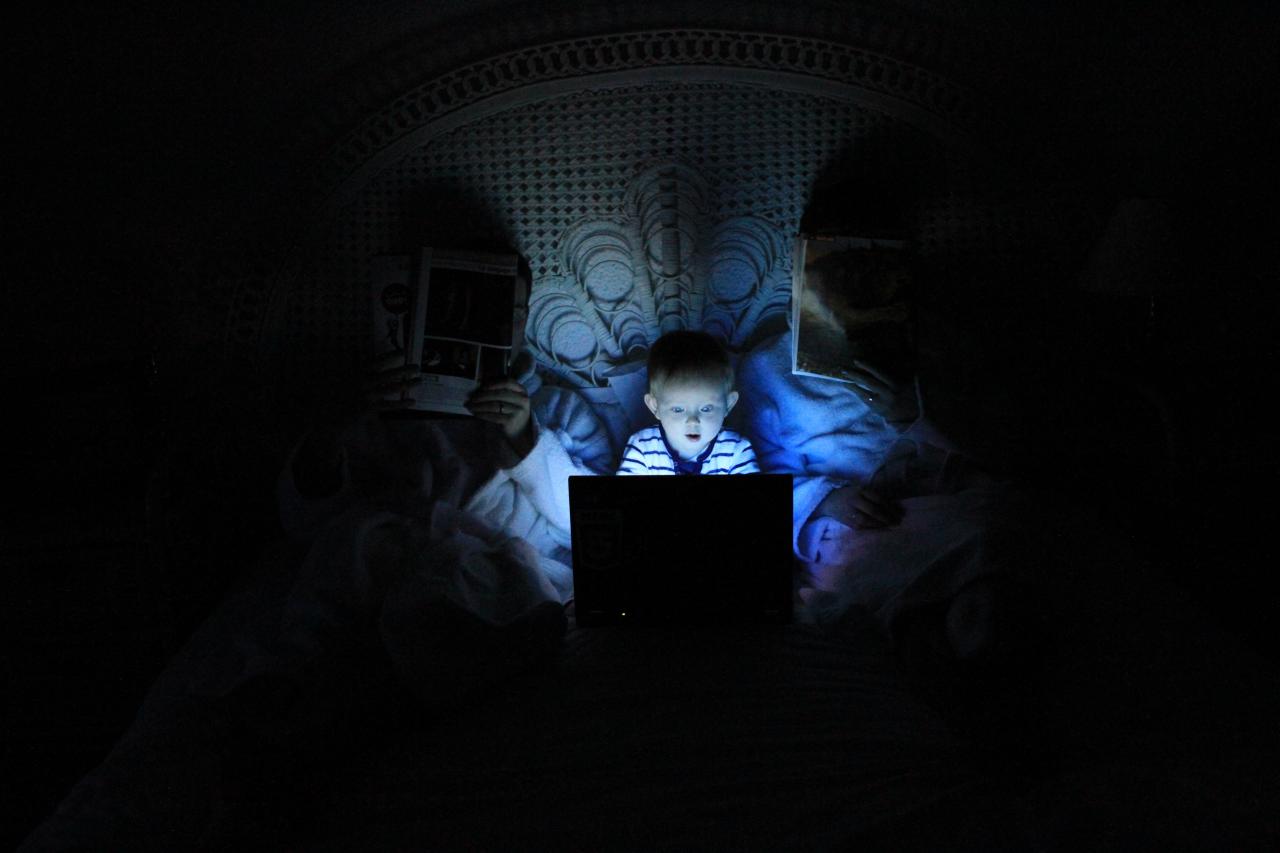Children nowadays have electronic devices ingrained into their daily lives. Kids use electronics for entertainment, the global pandemic also has kids studying and doing schoolwork on these devices, and they use them to communicate or socialize with their friends.
While all of this isn’t always a bad thing, screen time affects children and their sleep. Research has shown that electronic media, especially when consumed right before or during bedtime, increases sleeping problems in children. Research has also shown that these devices’ ‘blue light’ reprograms children’s brains to delay their sleepiness.
How ‘Blue Light’ Or Screen Time Effects Children And Their Sleep
Blue light is the wavelength of light that most of our devices emit. They have short wavelengths, and these types of light affect our minds by making us more alert and energizing us.
Blue light also regulates how our sleep-wake cycle works and our circadian rhythm. The effect of blue light is felt by both adults and children alike, but research has shown that children are much more sensitive, and the impact of blue light is felt much more in them.
Children tend to have larger pupils than adults, and our eyes become less sensitive to light as we age. Research has shown that light exposure is felt twice as much in children compared to adults. Of course, all of this can vary depending on the child’s age and developmental stage.
Impact Of Blue Light Exposure With Smartphones
Phones are planned and designed to make us more productive and make our lives easier. They provide never-ending entertainment and information. But using them right before going to bed or while in bed affects our brains by keeping our minds engaged and entertained.
Children might feel the need to stay up late just because they are having too much fun. Children might feel the distractions phones cause through calls, messages, and other notifications. Kids also feel tempted and have less restraint than adults to stay away from their phones during bedtime.
How You Can Help
Sleep is important. It doesn’t matter if you are an adult or a child; getting a good night’s sleep will help you stay healthy, reduce stress, and also helps better your decision-making. This is why you need to take steps to reduce your child’s screen time so that they can get the sleep they need. Here are a few things that can help.
Set a time limit on phone use: You need to limit your child’s screen time, especially before bed. Use alarms and timers to remind your children how much time they have left. You can also use screen-time applications that lock up phones when the time limits are reached.
Consider Blue Light Filters
Use blue light filters: if you can’t completely eliminate the use of phones in bed, using a blue light filter can help. You can use glasses that filter blue light or use apps that change the tone and shade of your phone or tablet screen.
You can pick and choose what tones of light you want by using blue light filtering apps. Ensure your kids get enough natural light: make your kids go out and take in natural sunlight.
Being exposed to bright, natural lights during the day helps regulate the body’s sleep-wake cycles and circadian rhythm. Have your kids run and play around during the day. This way, they will get exposed to natural light, and they will also be tired and ready for bed when the time comes.
